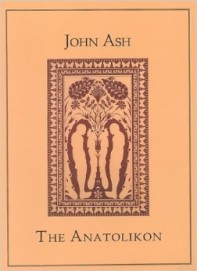 James Atlas
James Atlas
Random House ($35)
by Eric J. Iannelli
Saul Bellow has certainly reserved a place for himself in the literary Valhalla. His novels helped re-define American literature after WWII—an influence that won him two National Book Awards, the Pulitzer Prize (1975), and the Nobel Prize (1976). His success was largely a mix of good fortune and natural talent. In addressing his deeply personal concerns, Bellow's writing serendipitously captured some key part of a global Zeitgeist.
In his newest biography, Bellow, James Atlas has covered his subject in acute detail. He fares well in presenting a composite, and not simply exposing the man's flaws and foibles. This is achieved by the chronological analysis of Bellow's writing alongside his personal life—rightly so, as both are heavily interrelated. Atlas's research even predates Bellow's birth in 1915 to provide clues toward his nostalgic obsession with his own personal history.
Although the author hasn't always been forthcoming, admirers and critics alike acknowledge that Bellow's oeuvre is a series of romans a clef. With a plot similar to Woody Allen's 1997 film Deconstructing Harry, Bellow has employed his own struggles—and vendettas—to color the characters and action within his writing. Nevertheless, this strong autobiographical strain has invited adverse personal accusations, some of which are only justified out of context. Among them are misogyny, bigotry and elitism. Reverence runs high, but it doesn't preclude the grittier drama from appearing on the pages.
Because most of his grievances were aired publicly, Bellow had few skeletons in his closet. What is needed, however, is a proper examination of their bones. Atlas's work excels in this respect. He portrays him as being distrustful, judgmental, selfish, reticent, and hypersensitive to criticism—all the archetypal makings of a frustrated artist. Bellow, as Atlas argues, has rarely accepted blame or responsibility for his own actions. He thrives on victimization. Perhaps his greatest flaw—or asset—has been to define himself through asperity, suffering as a Jew, an unrecognized genius, or as a disaffected individual. His trials and ordeals were often, one is led to believe, self-inflicted, as if the words of Aeschylus would lead him to enlightenment: 'Suffer, suffer into truth.' After the publication of Herzog, Atlas notes that "Success had a destabilizing effect on him . . . he was more comfortable with opposition. Now there was nothing to resist." Yet his shortcomings have served as his means to success and, in moderation, his most endearing characteristics as an individual.
During especially difficult times, such as his father Abram's death, Atlas claims Bellow "repos[ed] his faith in the vindicating power of his own talent." Elsewhere he emphasizes the author's lack of supreme confidence in the same. So, in light of these oppositions in the author's life, what sort of man does this present to the reader? A contradiction. Atlas, however, handles the equivocal twists well and states his conclusions directly: "Early in his career, Bellow had been angry that he wasn't recognized; now that he was recognized, he was angry that he was misunderstood." He is equally as aware of other general patterns: "The arrival of a child meant that Bellow himself was no longer the child; he had been displaced by his own son."
One cannot write a biography (or its review) without noting Bellow's Judaism—or, better yet, Jewish-ness—and its influence on his collective writing. Unlike the "ethnic fiction" that dominates today's literary market, Bellow always stressed his American-ness over his Jewish-ness; only as he grew older did it gain a more prominent position in his essays and fiction. The universal experience was always his dominant emphasis.
As an enhancement to the copious index, Atlas's bibliography is impressive, consisting of many preliminary and unpublished manuscripts from the Regenstein Library at the University of Chicago, as well as interviews, criticisms, and private correspondence. That Bellow never kept a journal is daunting for any biographer, but one is hardly conscious of its absence. There are one or two minor editing mistakes, which will likely be rectified in subsequent printings, and some disputable tangential facts—for example, an aside about Dylan Thomas, "who had fallen off a bar stool at the White Horse Tavern and was in a coma at St. Vincent's Hospital." The actual events preceding his alcoholic coma, as I have come to understand them through prior research, were less dramatic. Although Nabokov's footnoted dismissal of Bellow as "a miserable mediocrity" merits a belly laugh, one might enjoy a bit more information about the rivalry between the two. But, on the whole, there are few flaws in Bellow. Atlas has succeeded where Mark Harris failed, notably in Saul Bellow, Drumlin Woodchuck (the elusive creature in a Frost poem), Harris's account of his frustrating inability to write the author's biography.
In "The Last Analysis," a 1964 Broadway flop, Bellow's protagonist remarks, "The self-absorption of people who never tire of exploring their depths is the source of our comedy." Now, forty years later, one might be able to change the last clause to read " . . . the object of our admiration." As a man, Bellow himself is intensely human, with all his defects and talents exaggerated. His self-absorption has led to a prolific career, and popularity through his compassionate, empathetic portrayal of the everyman. Bellow deftly elucidates the subtle complexities of its subject and his work. The title bears the name proudly, and it is unlikely that any other work of the same length will surpass it.
Click here to purchase this book at your local independent bookstore

Rain Taxi Online Edition, Winter 2000/2001 | © Rain Taxi, Inc. 2000








 John Ash
John Ash